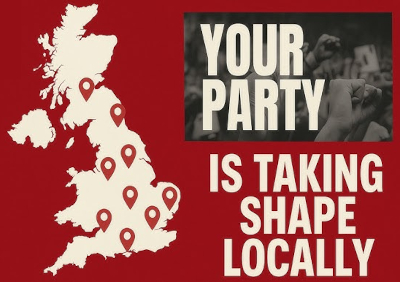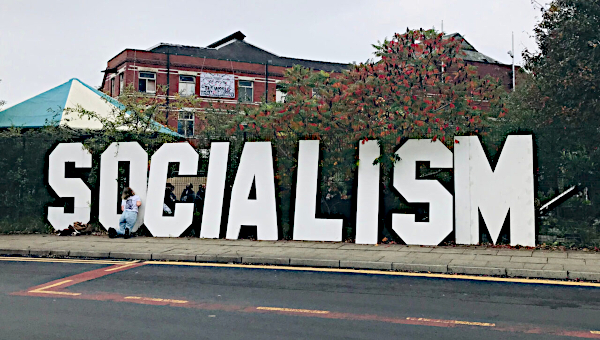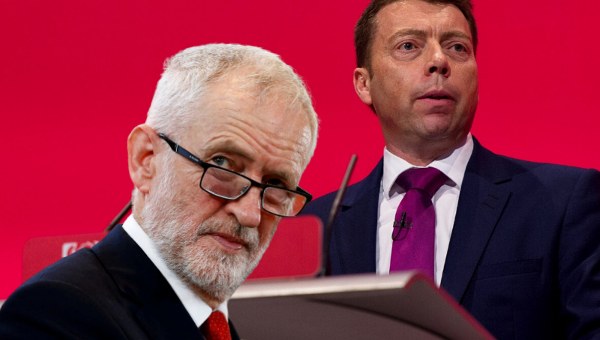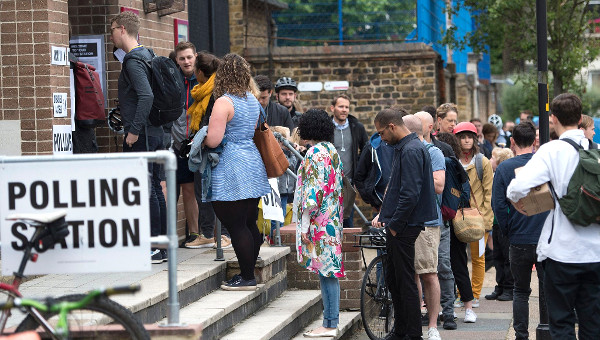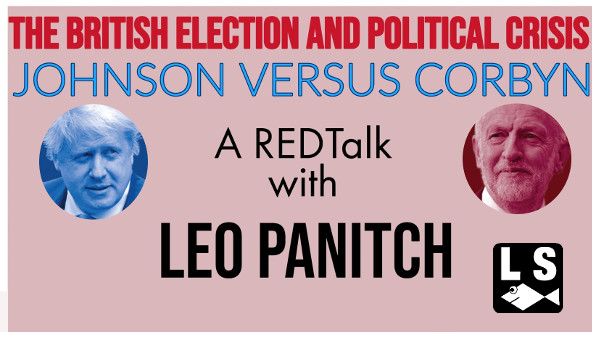A New Left Party Emerges in Britain: Born for Life or Marked for Death?
For a socialist party, the fundamental purpose of its existence is to be a mass association of the working class, united for the purpose of collective political action, independent of all capitalist parties and influences. Its foundations are rooted not in the blind trust of or the slavish loyalty to the self-appointed few but rather for the democracy of the many.
It is thus of supreme importance, above all else, that such a party reflects in its structures, practices, and modes of behaviour not the society it developed inside of but rather the society it aspires to build. It must practice what it preaches for all involved to believe that socialism demands democracy, precisely because democracy demands socialism. Form is function, and function is form. The two are intrinsically linked: the ends are the means, and the means are the ends.
What that clearly implies is that for a party to be a party of socialism, it must also be the party of democracy, for it is only by being the most consistent democrats in the society in which it operates that said party can expose the limitations of what scant democracy the people it seeks to represent truly have. It must also be the mechanism by which it can equip those people with the weapons necessary to arm their own self-emancipation.
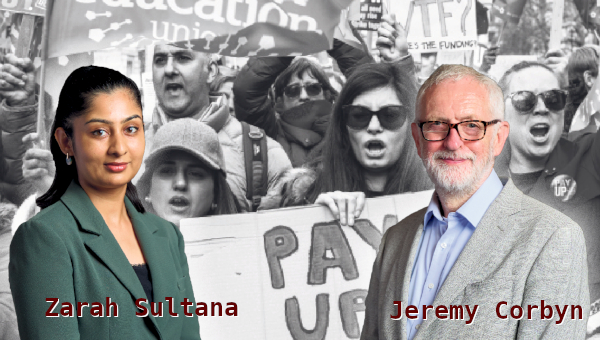
New Model Left
These are not mere abstract ideas, niceties that socialists of all types must mutter under their breaths before going to sleep at night, but rather practical necessities, necessities that any New Model Left Party must be the concrete realisation of.
Democracy is when the governed govern themselves. In the context of a socialist party, that means members are the sovereign rulers of their own organisation and the resolute shapers of their own destiny, free of interference and domination and with no Party King or Queen, or their Court to rule over them, or whom they must obey or show deference to, but instead a Party Republic, in which all are equal.
And so, we must start as we plan to go on. Either we believe that the socialist movement is an open conspiracy of equals, or we don’t believe in the movement at all.
As of the time of writing this [Aug 23], there has yet to be any announcement of when, what, and how the foundation process (and accompanying conference) of the new left-wing party in Britain is going to look or function. It is too important an issue for the many to simply sit at home twiddling their thumbs, waiting for those that have deemed themselves our betters to act. In their inaction, it falls upon all of us, as nascent party members, the commoners of our own Republic, to define what and how that process and resulting foundational conference must evolve.
This is my contribution.
Founding Conference
For the outcome of the Founding Conference to have any democratic legitimacy, it must be representative of the near 800,000 people who have registered an interest in the party by signing up to its mailing list.
Several proto-party branches have been launched by activists up and down the country, and their very existence is living testament to the energy, initiative, and good faith of ordinary people determined to give our party life from below. These groups have worked admirably, often with little more than their own time, resources, and determination, to bring people together and organise for a new political force.
Yet, their ability to reach the wider layers of support has been structurally limited. The refusal by those at a national level to share access to the near 800,000 names on the mailing list has meant that proto-branches have had to rely almost entirely on pre-existing activist networks and social media. While these methods have value, they cannot by themselves connect to the great mass of people who have signed up in the hope of genuine participation.
This is not the fault of local organisers – on the contrary, their work deserves to be recognised as the first shoots of grassroots democracy in action. But it is unfair to them, and unrepresentative of the whole movement, to imagine that in current conditions these branches alone can form the democratic foundation of a delegate system. To do so would heap an impossible task onto their shoulders while letting those who withhold access from above off the hook.
What is needed is to take the best of what these proto-branches have demonstrated – initiative, dynamism, and commitment – and enable them to flourish as democratic organising hubs. Linked to a wider process of registration and to universal rights to participation, they can become the backbone of a genuinely representative founding conference, rather than being forced into the role of a substitute for it.
Adding to this is the announcement that the founding conference would be hybrid in nature, with both an in-person event and some form of online participation. Whilst this is a noble ambition, how it could work in practice is still up in the air. It has the potential to descend into nothing more than a room-packing exercise, both physically and virtually, and, unless handled with great care, it would likely reduce the in-person meeting from a working political event to a theatrical show, with any decision voted upon in the room meaningless as decisions made by deliberation are overruled from afar by online voters who have not, and by virtue of not being in the room cannot, participate in the deliberations directly nor confer with others around them to come to a decision they then decide to vote upon. So, whilst it would no doubt make people feel good and a part of history, the lack of equality of outcome between participants means it would not be particularly democratic.
I have been informed through conversations with a variety of friends close to the top-down organising committee that moves are afoot by some at the top to have no democracy at all. Instead of being elected by some method or another, delegates would be hand-picked from personal patronage networks and representatives of trade unions (by which they mean bureaucrats, not the rank and file). Then groups they have friendly relationships with would be the ones making the decisions, the results of which would be predetermined weeks in advance of the founding conference itself. Should this be the process adopted, it would be hard to describe it as anything but a coup d’état by a wannabe party elite nakedly hostile to democracy.
It is thus not a viable option for anyone interested in the kind of radically democratic, genuinely mass socialist party of an altogether new type previously unseen in British politics that we have all been promised, and that we have all been working together collectively to try to define. Far from a Party Republic, the founding conference is shaping up to be an audience for the Party King or Queen and their Court; with a façade of equality masking the truth inherent of monarchical rule – that some are more equal than others.
If democracy is, as previously stated, when the governed govern themselves, and if for a socialist party this means members are the sovereign rulers of their own party and the resolute shapers of their own destiny, how do you get there?
Zarah Sultana has spoken admirably (and publicly, unlike others with decision-making powers) about the necessity of One Member, One Vote at the founding conference as a way of giving people equal rights to participate in the conference proceedings. This is, however, a slightly incorrect description or use of the phrase. There is no membership yet. A membership structure won’t be defined until the business of founding conference closes. The logical conclusion is that what Zarah is really calling for is One Participant, One Vote, but in the absence of a membership structure, who can, and more importantly, who decides, who gets to participate?
Sortition
Edmund Griffiths has proposed a rather ancient solution to the question of proto-party democracy: the use of sortition to decide who gets to attend the in-person founding conference and vote on the various proposals that will be put in front of it.
For those unaware of what sortition is, it is a method whereby participants are selected at random, via a lottery, in order to obtain a representative sample of the those registered to participate in said selection. As a mechanism for electing representatives, it is as old as democracy itself. It was used by the ancient Greeks for the appointment of legislators, in this case through the use of census records, and was the principle defining characteristic of Athenian democracy.
I want to make it absolutely clear that I am a firm believer in elected, accountable, and delegated-based deliberations, but for a party without a membership and a great mass of supporters, sortition is, in my opinion at least, the only viable alternative by which conference participants can be selected and whereby the selected delegates would have any legitimacy to legislate the party into existence.
In the absence of a membership structure through which delegates can be elected, it is logically the only mechanism for the purpose of selecting delegates to the founding conference that can be based on the equal right to participate and that can guarantee genuine mass representation of the two-thirds of a million people that have already registered interest in the party. These two, when combined, are the basis for the founding conference having meaningful democratic legitimacy and the method by which the foundations for a radically democratic party can be collectively dug and a mandate be given for the concrete to be poured that will provide it with the necessary structural and moral integrity to be a genuine success.
It may also well be the only avenue through which a decisive break can be made from the mistakes of the Corbyn era: the cults of personality around one public office holder or another, and the apolitical, anti-democratic networks of personal patronage and authoritarian enforcement through which people associated with said big wigs get to dictate decisions that should otherwise be democratically deliberated and decided upon.
This is road that I believe, if walked down, is the democratic and sole path to a Party Republic in which all members are equal, and none more equal than others.
So how would that work in practice?
If we are to take a leaf out of the book of Athenian democracy, then, of course, a census has to be taken and accompanying tax paid. This can be done through open online registration for entry into the sortition pool for a nominal fee. For nostalgia’s sake, I recommend this should be set no higher than the £3, which was the fee required for someone to become a registered supporter of the Labour Party and vote in the 2015 leadership election that propelled Comrade Corbyn to high party office.

The registration period should be open as soon as possible, publicised widely (including, but not limited to, via email to the 700,000 or more that have signed up to the proto-party’s mailing list) and should exist for two weeks to ensure the maximum amount of time reasonable for those who wish to participate to register their interest. After this date, the associated data should be handed over to a neutral third party, such as the Sortition Foundation, who can then conduct the election of delegates and alternates without bureaucratic wrangling or the risk of people favourable to those above being hand picked to attend. The entire process and methodology for doing so should be transparent, with a report by said third party published openly at the same time as those elected by sortition are informed of the result.
The delegates will have the right to attend the conference in person, and their attendance should be supported by the crowd funding of universal travel and accommodation bursaries to ensure that anyone, regardless of means, can participate. Free professional childcare should be provided at the founding conference itself. If possible, hotel rooms should be booked, coaches hired to ferry people from regional hubs to the conference location, or discounted train tickets negotiated with the rail networks via bulk purchase. All additional funding for conference proceedings should be crowd funded.
The founding conference should take place over the course of a long weekend in November, starting with a Thursday evening session to confirm (and potentially amend, should important additions need to be made to ensure the smooth running of events) the agenda and set out the practical procedures of the founding conference, along with any related questions. This, in turn, should be followed by full conference business beginning the following morning and continuing until Sunday afternoon.
Each sortitioned delegate will have an equal vote to any other, fulfilling the One Participant, One Vote principle. Over the course of the weekend, the founding conference itself would then decide the party’s name, structure, principles, and strategy and elect a party leadership – preferably a collective one. The conference should be streamed online, accessible to all those who had previously registered to participate.
But who gets to decide what is up for debate, you ask? Well, this, my friends, is where we fulfil the promise of the hybrid in-person/online nature of the founding conference that has already been announced.
Conference Procedures
First off, we need a Conference Arrangements Committee that is actually reflective of the many who have signed up to the nascent party’s email list. The onus on delivering this is on the top-down organising committee, since they are, whether we like it or not, the ones currently in control of the wider process. This means a Conference Arrangements Committee that is gender balanced, racially and ethnically diverse, cross-generational, and drawn from across the country. For it to be a functioning committee, it should be made up of an odd number of people, a maximum of fifteen, so as to prevent split votes crippling the committee’s work, with the minority accepting the decisions of the majority, and with the majority respecting the position and rights of the minority as an equal player in the process.
Everyone on the Conference Arrangements Committee must accept, by virtue of their decision-making role, that they are to be barred from standing for any elected leadership positions at the founding conference, and from placing their name in the sortition hat for the purposes of delegate selection. The names of those on the Conference Arrangements Committee should be public, and their decisions and the reasoning behind those decisions made public for transparency and popular scrutinisation.
The Conference Arrangements Committee should create a secure online platform for all those who have registered to participate (and whose names were put into the proverbial hat for sortition purposes) in the founding conference to submit and discuss motions, amendments, and related proposals, plus nomination of individual candidates for at-large positions on the national collective leadership, as well as two national co-chairs, well in advance of the founding conference – ideally immediately after the sortition process has taken place.
Anyone registered can then make a submission for consideration, but they must then be supported by a minimum of 200 valid signatures of other registered participants, regardless of whether they have been elected as a sortitioned delegate. The platform should include mechanisms for verifying signatures and ensure transparent, accurate record-keeping and timely acknowledgement of all submissions. This would be further strengthened by the active encouragement from above for the creation of working groups from below through which ideas and strategies can be thought out collectively before being submitted to the registered participants for consideration, alongside digital and in-person public assemblies where particular topics can be openly debated for and against before the cut-off date for consideration. An online discussion forum would allow participants to discuss these topics in great detail and propose friendly amendments that can be accepted by the proposers of the initial proposal, creating a dynamic of collective participation right from the beginning. This allows for mass political education at every stage of development of the ideas shaping the new party.
The right to submit motions and amendments via this process complements the One Participant, One Vote-based voting at the Founding Conference, ensuring full participation in shaping the agenda and policies regardless of whether participants are present in-person on the conference floor or watching at home from the comfort of their living room.
Prior to the founding conference taking place (and no more than a week before), items that have reached the required threshold for consideration should be voted upon by all registered participants as part of a priority ballot to ensure that the most popular items reach the founding conference floor. These will provide the basis for the agenda to later be consented to and/or amended by the sortitioned delegates on the Thursday-evening session of the founding conference.
To guarantee the equal right of participation for all factions, groups, and platforms at the conference, based on the principal of proportional representation and support, all registered participants should vote for candidates (preferably by “party lists”) of pre-registered founding conference factions using Single Transferable Votes under the Droop quota. Proportional to their share of the vote (inevitably tied to the support of their proposals), members of said factions will be guaranteed representation on the conference floor based on the popular strength of their politics, with speaking, but not voting rights – allowing for them to make their case publicly to the delegates elected by sortition and to organise on the conference floor for the adoption of their positions over the course of that long weekend, and with the potential party membership more widely in the proceeding period.
To facilitate and make these online deliberations meaningful means that multiple online debates should be organised and centrally chaired either by Corbyn or Sultana in the run up to the conference in which all pre-registered factions will be able to make the case for their proposals and answer any questions other registered participants might have for them. Candidates should, as with motions, require a minimum 200 signatures of support to qualify for the ballot as well as confirmation of status as a member of the faction by their respective organisation at the time of proposal.
As with the election of delegates by sortition, the election of factional observers by registered participants should be conducted by an independent and neutral third-party organisation, ensuring the result is free from bureaucratic manipulation or wrangling.
All in all, we should be looking at a minimum of 2000 delegates (including factional observers with speaking rights) in attendance, ten percent of whom should be elected from the candidates proposed by pre-registered founding conference factions and groups, with the rest of the delegates elected by sortition as previously described.
In doing so, we ensure the widest possible participation of any founding conference of a political party in British history, rooted firmly in democratic principles and giving ownership over the party directly to the many, at the expense of the few who would otherwise like to control it by any bureaucratic means necessary. With members having no one to rule over them but themselves, it will be a Party Republic, in principle and in deed.
For those of us committed to a democratic mass socialist party, based around the idea that the party should be an organisational republic of its members, the above proposals form the basis by which this can be won by the many, irrespective of the demands of the self-chosen few.
In the coming days and weeks, I myself am looking to organise with others around the ideas set out in this series of articles and the “British DSA” proposal for the party’s structure, in particular. If you are interested, you can email me at newleftparty.defy503[at]passmail.net – I will endeavour to reply as soon as possible.
Above all else, the process I have outlined is about starting as we plan to go on. If we’re not democratic from conception, we’ll never be democratic from the party’s birth or throughout its life, and if the party isn’t democratic, then the prospects of achieving our goals are extremely limited, and the party will already be marked for death. Born for life or marked for death – the difference lies in what we do now. The foundations we lay together can give birth to a Party Republic that endures for generations and makes possible the realisation of the collective dream we all hold dear: socialism in our lifetime. •
This article first published on the Max Shanly blog.


